|
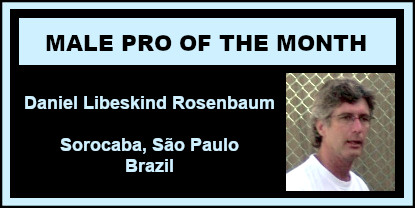 |
NOVEMBER
2019
WINGATE
INSTITUTE AND ITF LEVEL 2
TENNIS COACH
|
abc |
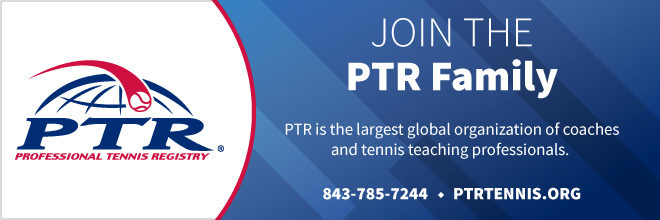
 |
ABOUT DANIEL
LIBESKIND ROSENBAUM
(on LinkedIn)
I am a Wingate Institute and
ITF Level 2 Tennis Coach graduated in Social Sciences at the
University of Sao Paulo.
During a long and successful
career have been strongly contributing to the tennis industry
making effective efforts to enrich and improve players and coaches.
Since 1982 have been teaching
and coaching at all the levels, promoting the game and the participation
in sports, designing and implementing tennis programs for young
beginners, adults, juniors and professional players. |
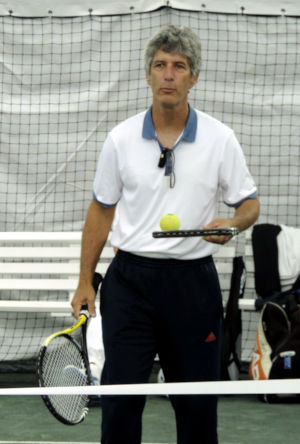 |
 |
 |
As participant, speaker and producer,
have participated in several national and international tennis
courses, conferences and workshops; conducted approximately two
hundred and fifty coaches’ courses being responsible for
thousands of certifications.
Among many activities founded
and coordinated the Coaches Education Department for the Brazilian
Tennis Confederation with Carlos Kirmayr, and directed the Achievement
Program at the Israel Tennis Centers’ Association.
Currently coordinating development
projects at Sao Paulo State Tennis Federation in Brazil, introducing
new management models, presenting modern teaching programs and
integrating coaches through mutual cooperation and common objectives.
Also teaching patients in a Medical
SPA using tennis as an important additional tool to combat the
sedentary lifestyle, decrease obesity and improve emotional balance.
I enjoy to work out with all
kinds of students, players and coaches, from beginners to professional
levels, contributing to their personal development, delegating
responsibilities, increasing motivation and commitment.
I deeply believe that tennis
is a mean to transform students in better persons concerning
the educative roll of our job, promoting ethics and teamwork.
My wishes are to continue to
benefit people in all senses through sport activities and to
develop myself professionally as well. |
 |

 |
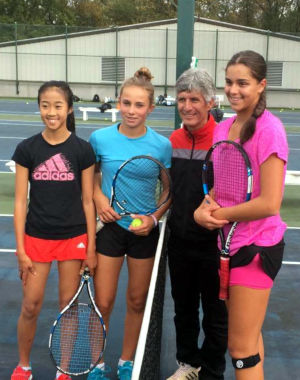 |
QUESTIONS
FOR DANIEL LIBESKIND ROSENBAUM
TCB: Where were
you born?
DLR: I was born in Uruguay.
TCB: Why Italian
and Israel citizenships and not Uruguay?
DLR: My wife is Italian so I got the Italian citizenship. I lived
for almost ten years of my life in Israel in a couple of periods
so I also have the Israeli citizenship. I am a resident in Brazil.
TCB: How old
were you when you started tennis and who got you into the sport?
DLR: I started playing when I was nine years old. During my childhood,
since very early, always played ping-pong with my father's rackets
and balls against the wall in my bedroom - standing or on my
knees - and on the kitchen table. |
 |
 |
My father played table tennis
very well - he was University Champion and that was legendary
for me. We used to play in any given opportunity. I was so small
that I needed to stand on an apple box or had to wait for the
ball go out the table.
Also played a lot with racket
paddles on the beach or down in the street. This is how the passion
for rackets and balls began. When I was nine years old, my family
became member at a social / sportive club and I started to participate
in every sport activity. I started the tennis lessons together
with my sister and to play with other kids on the tennis courts
at the club. Some of those lessons and playing experiences I
remember until today. It´s surprising, however, never played
tennis with my father.
My first racket was a Dunlop
Maxply imitation called Maxima. I´m so sorry I didn´t
keep it and don´t know where it ended up. When I was eleven
years old, we moved to Brazil to a region in the south with a
lot of tennis tradition because of the German and Italian immigrants.
Lots of clubs with many great players, many tournaments, national
and international.
It was during the 70's and we
could follow great South American players emerging, generation
after generation. There had always been local idols, besides
the big names of that time circuit. Therefore, I started to play
in a couple of clubs with friends, singles and doubles at least
four times a week. Eventually, went on with more tennis lessons,
took part of some club rankings and local tournaments. Practicing
on the wall was sacred.
TCB: Is Sorocaba,
São Paulo, Brazil your current address?
DLR: Yes. Sorocaba is a quiet city very near to São Paulo.
About 90 km. I lived in São Paulo for 20 years. When we
came back from Israel in 2012, we decided not to face the craziness
stress of São Paulo anymore and came to Sorocaba to grow
the kids in a tranquil environment. |
 |
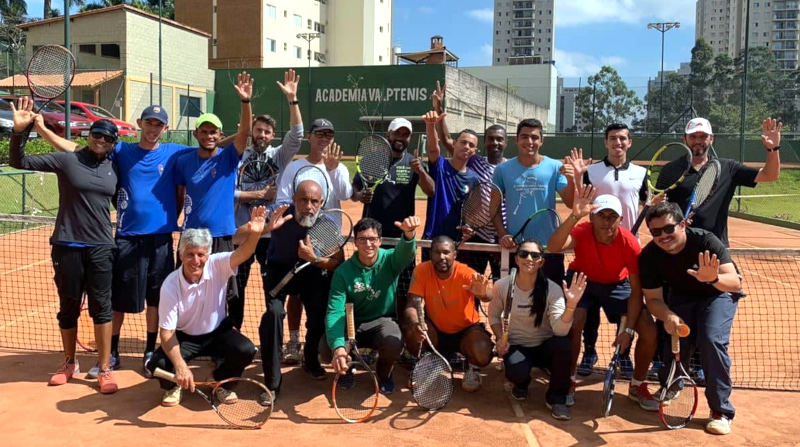
 |
TCB: What made
you decide to go into tennis teaching?
DLR: I was 18 and visiting Israel for a one-year period. It´s
very common for Jewish teenagers to have this kind of experiences.
I decided to stay for some more time. My parents did not like
the idea of having to postpone my return and my continuity at
the College. I was studying Engineering.
By the way, the regular path
was to study at the University. Not even thinking about a sport
professional career. That idea almost didn´t exist for
regular youngsters at the 70's and 80's. I decided to stay in
Israel and had to find a job. I tried in hotels, travel agencies.
My first job was in a t-shirt factory and I was doing very well.
Then, a friend of mine, who knew I used to play tennis, suggested
to me to teach tennis. It sounded surprisingly good. |
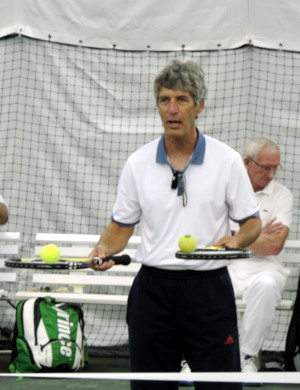 |
 |
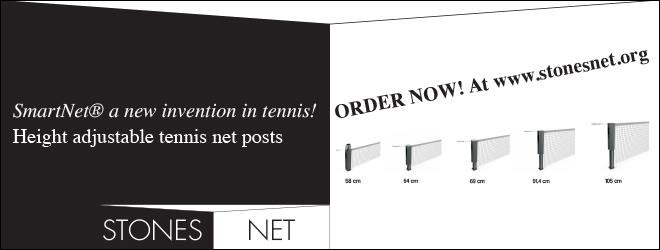
 |
I never ever thought about teaching
tennis as a mean to earn money. It was in 1982 and I was living
in Jerusalem. I visited all the tennis courts of the city and
knew the local Israel Tennis Center. They said to me that there
could be a chance of working during the summer programs and maybe
a further continuity. If necessary, they would call me. When
I visited the YMCA tennis courts, they recommended me to ask
at the Municipality Sport Secretary. There, they offered me a
table tennis teacher job during some afternoons of the week,
in a public gym. I took it immediately. I confess that, until
then, always played table tennis better than tennis.
Getting close to summer, I got
a phone call from the Israel Tennis Center asking if I am still
interested in the summer camps job. Of course, I accepted and
left the table tennis job. Since then, I didn´t stop teaching
and learning about tennis. I think I was very lucky to be adopted
by the Israel Tennis Center and to be part of a generation of
coaches who grew and developed themselves under the idealism
of that organization, at that time composed by eleven tennis
centers spread along the country. Today there are fourteen. The
project meant to develop tennis players by turning tennis more
popular and affordable, creating massive social programs from
where future talents could be identified, selected and trained
in order to become high level players due to represent the country
as sport ambassadors competing at international tournaments.
That target gave a strict and objective direction to everyone
involved.
There was a great international
board making efforts in order to provide financial resources,
great directors, mentors, coaches, all created a positive environment
full of enthusiastic pioneering. We were just driven and we´ve
got that drive. We were lucky to follow professional examples
and be supervised receiving orientation, motivation and responsibilities.
Those elements represent much more importance in the development
of a coaching career than the questionable tennis information
possible to acquire (simply everywhere today - I put a big question
mark in the quality of that information) and the not less important
management mindset of the actual tennis business. We can discuss
about the methods used, the final goals and the successful results. |
 |
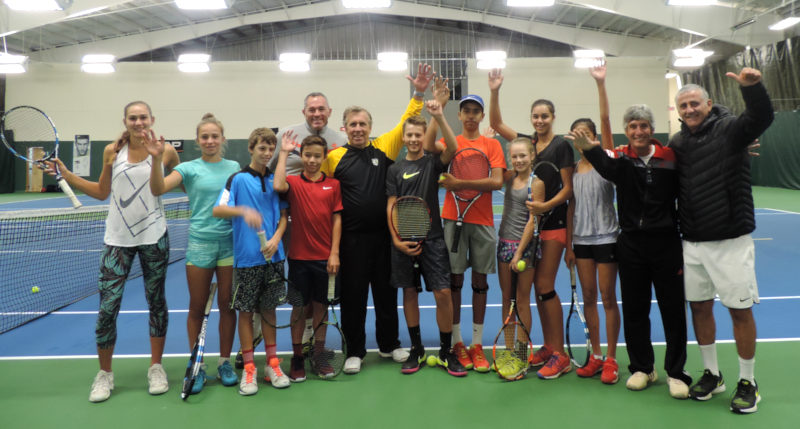
 |
At that time, it worked and achieved
the objectives effectively. Of course, that formula cannot be
actual anymore. Today we have much more scientific knowledge,
other visions and missions and rolls to fill. As I was working
and learning to teach, somethings started to bother me. The method
used was mainly basket feeding. The goals trained were mainly
technical. The technical patterns were very restricted. The relationship
with the students was very authoritarian. The talented chosen
players were those who achieved to replicate strokes' executions
at early ages. Only few were successful and invited to continue
practicing "seriously". The most of the kids who were
not "so talented" because did not show early coordinative
abilities to replicate strokes were condemned to not become players
at all and did not get the necessary attention nor opportunities.
The conformity of technique (ideal strokes’ execution) was
the main teaching objective and critical as an evaluation criterion.
In my opinion, that method to select and develop players was
unfair and counter-productive with the most of the kids. It aimed
to develop few high-level players instead of including everyone
into a whole life sport first. I thought already then that coordinative
general motor skills should be developed before specific tennis
technique; practicing ball control was a mean to stimulate those
skills and a pre-condition to play the game. Playing the game
was a pre-condition to enjoy, learn it and be emotionally involved.
I decide to change the method
and designed a beginners program based on those principles. The
focus was ball control exercises, rallying with partners and
on the wall, playing adapted games on small-adapted courts. When
I presented the program to the technical board, the impression
was “too much fun, too little technique”. I didn´t
find more space to develop myself and to put in practice the
new system I adopted. As I came back to Brazil, I fortunately
knew personally former player and turning coach Carlos Kirmayr.
He ran his tennis schools, camps and coaches’ seminars and
invited me to join his team. At the time he was bringing to Brazil
the “Swedish System” endorsed by Bjorn Borg based on
soft balls (Tretorn), smaller rackets (Donnay) and portable nets
used to popularize tennis in Sweden among the schools. The method
I was developing suited exactly to it and so, we started using
and promoting “mini tennis” as a beginners teaching
method. Since then I started to present at coaches’ seminars,
continue learning more about tennis and sport sciences. It was
my turn to share information and help colleagues and didn´t
stop until now.
Carlos and I developed a strong
friendship and a solid partnership running tennis projects. The
most significant was the creation of the Coaches’ Education
Department of the Brazilian Tennis Association. We designed,
coordinated and ran more than two hundred coaches’ courses
for more than 4000 participants.
In 2008, I was invited by the
Israel Tennis Centers to install a players’ development
program based in new teaching methods because they were not satisfied
with the results of the old fashion system they still used.
It was a great challenge. It
was necessary to train the coaches with new methods based on
“open skills” and coordination teaching, adapted equipment,
utilization of “open systems” and a “game based
aproach” philosophy. More important was to redirect the
objectives of the coaches meaning to develop motor skills, creativity,
tactical situations and a different concept of technique based
on making decisions according to varied aleatory situations.
Those were two radical changes: a new rhumb and a different transportation
to get there. It was not easy. There was an understandable legitimate
resistance. I´m thankful for the great professional opportunity
that made me work in such scale. I could learn a lot and a legacy
was left. Besides the great friends I could review and make,
it was my time to give back. I still see a big confusion and
misunderstanding about the adoption of teaching methods. It looks
like the “traditional” method based on technique execution
(closed skills) is antagonistic to the “modern” method
based on tactical game aproach (open skills). In reality, both
are important and complementary. As methods, they are tools and
coaches should know how to take advantage of them utilizing them
with criteria properly and opportunely. Technique as we know
traditionally is fundamental. However, following a holistic perspective
is more important and productive to develop a possible playing
experience, and gradually improve other aspects as the quality
of the strokes. It´s better to teach players that play
and develop the strokes than students that only learn the strokes
and never play. |
 |
 |
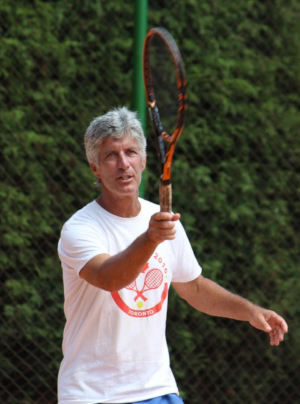 |
TCB: Is your current
position ‘Tennis Coach at Spa Med Sorocaba’? Is that
in São Paulo?
DLR: Since we came back to Brazil at the end
of 2012, I resumed the partnership with Carlos Kirmayr and started
to work in the Sao Paulo State Tennis Federation coordinating
development projects. We wanted to introduce new management models,
presenting modern teaching programs and integrating coaches through
cooperation and common objectives. I designed and offered several
times a “Head Coach Course” because we believe this
is a professional figure with clear rolls and attributions that
has to be promoted to improve the management, leadership and
development in tennis. I also designed teaching and coaching
programs for beginners, intermediate and advanced players and
offered in respective courses. |
 |
 |
Besides the updated information,
I see the Coaches’ Courses as great opportunities to integrate
colleagues, interchange experiences, share knowledge and increase
the mutual respect.
In addition, as a regular tennis coach at Spa Sorocaba, which
is a medical Spa, I have the chance to teach patients using tennis
as an important additional tool to combat the sedentary lifestyle,
decrease obesity and improve emotional balance. Many of the patients
come because of serious health problems, physical and/or psychological.
I am happy to work modeling the lessons considering these aspects,
the advantages of sport activities and the specific benefits
of tennis. It´s quite different from the regular classes
in clubs and academies. Sadly, because this is what the coaches
should have more in their minds but it´s not what they
receive as the main information at the Coaches’ Seminars. |
 |
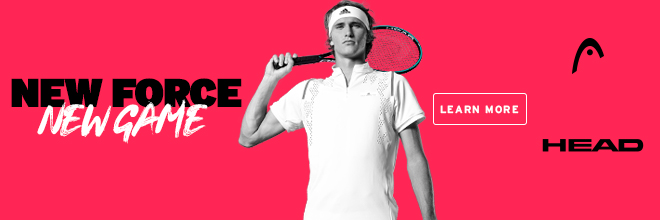
 |
TCB: What are
some of the challenges in your job?
DLR: Concerning the educative roll of our job, I deeply believe
that tennis is a means to transform students into better persons,
promoting ethics and teamwork. I think that the big challenge
is to consider the student as the most important player in the
teaching/learning process. Generally, unconsciously we put our
anxieties and ourselves first. We want to be good in our activity,
successful, well known, appreciated. We try to follow and achieve
our interests many times to the detriment of our students’.
Takes time to recognize – consequently, to make the students
realize - that we are there to help them to achieve their interests,
to attend their needs, to improve their skills. Maybe they don´t
know their interests, maybe they can change them. With knowledge,
influence and persuasion, we can help them questioning their
necessities, proposing more interesting interests (sorry the
redundancy) and, by the end, improving their abilities and capabilities
realistically at all the aspects of the game.
Our job is to bring all of them
to a healthy, enthusiastic enjoyable sportive life. With all
the needed efforts and deserved rewards. We have to be very careful
and avoid committing recurrent mistakes. The same way the roll
of the student is to dedicate himself and practice to be a little
bit better along the lesson, we coaches have to dedicate ourselves
and practice to be a little bit better too. The lessons are a
great opportunity for us to practice and improve. If we improve
as coaches, our students will improve as players. We have to
thank our students every single lesson because they give us that
amazing chance. Of course, we also have to get the right orientation
in order to practice well. It is a different point of view: improving
the player does not make me a better coach; improving as a coach,
I can develop better players.
TCB: Do you prefer
teaching kids or adults?
DLR: I enjoy working out with all kinds of students, kids and
adults, players and coaches, from beginners to professional levels,
contributing to their personal development, delegating responsibilities,
increasing motivation and commitment. I think that teaching adults
is easier. We can share thoughts, visions of life, we can learn
a lot from their personal life experience. They have already
grown and learn faster. With kids everything is different, the
rhythm, interests, capability of concentration, we depend and
adjust ourselves to their individual development and have to
be much more patient. This is why coaches and parents should
not expect early results from the kids.
Independently, we have to prioritize
the human relationship, promote empathy and the well-being of
the students. The lesson is a great opportunity to enjoy the
mutual company between teacher and student.
TCB: What are
your future plans? Where do you want to be 5-10 years from now?
DLR: My wishes are to keep benefiting people in all senses through
sport activities. I always look to work in a place where I can
exploit my potential, help that place to grow and develop myself
professionally as well.
I want to keep strengthening ties with colleagues and feel that
I am not working alone. Who lonely works, only works.
TCB: Do you still
play tennis yourself?
DLR: Every single day. I love to hit with the students and to
play matches with them as possible.
TCB: What is
your racquet of choice?
DLR: Prince.
TCB: Thank you,
Daniel Libeskind Rosenbaum. |
 |
Congratulations
to Daniel Libeskind Rosenbaum for being our
November 2019 Male Pro of the Month. |
|











